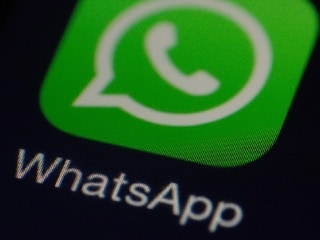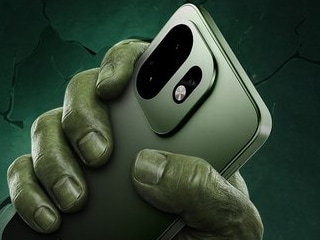- Home
- Culture
- Culture Features
- 25 Books to Get Started With Science Fiction
25 Books to Get Started With Science Fiction

Our science fiction coverage makes it quite evident that we love the genre. Over the years, we’ve noticed that many people don’t even consider reading science fiction (SF) books even though the genre has many books that are easy to read.
For someone who doesn’t read SF, the genre can appear intimidating but not all books are complex and you definitely don’t need to be some kind of a science expert to read them. If you’re new to the genre and wondering what the fuss is all about, here’s our list of 25 books to get you started with SF.
We picked the books we thought would appeal to those who don’t read science fiction. Many of these books may even make it to best-of lists in other genres such as thriller, mystery, horror, literature, and so on. We picked our favourites (with inputs from multiple members of the Gadgets 360 team) and restricted ourselves to one book per author in the list.
These aren’t necessarily the best works of science fiction, but they’re all approachable for those who haven’t explored the genre.
SF Masterworks: A Collection of Science Fiction Classics Every Fan Should Own
1. Hitchhiker’s Guide to the Galaxy - Douglas Adams
This is one of the funniest science fiction books ever, written by Douglas Adams in an inimitable style. Hitchhiker’s Guide to the Galaxy chronicles the pan-galactic journey of Arthur Dent, who may just be one of the last surviving humans in the universe. The hilarious supporting cast includes the mercurial Zaphod Beeblerox, 'poetic' Vogons, and the perennially depressed robot Marvin.
Published in: 1979
Buy: Amazon
2. Starship Troopers - Robert Heinlein
In Starship Troopers, humanity is engulfed in a struggle for survival, fighting insect-like aliens across the galaxy. Since the novel has a first-person narrative from the viewpoint of a soldier, you’re drip-fed information about the state of the war. Do not judge this book by the atrocious movie - you’re better off avoiding the film in case you haven’t seen it yet.
Published in: 1959
Buy: Amazon
![]()
Photo Credit: Richard Unten/ Flickr
3. Rendezvous With Rama - Arthur C. Clarke
Just like Starship Troopers, the pacing in Rendezvous With Rama is breathless. Humans spot an approaching alien spacecraft in the 2130s and name it Rama. This book has an excellent description of humanity’s first contact with aliens and how society is likely to react. Clarke was known for his pursuit of scientific accuracy in his works and this book is a shining example of making complex scientific concepts easy to understand, though the sequels were a let down.
Published in: 1973
Buy: Amazon
4. The Handmaid’s Tale - Margaret Atwood
The Handmaid’s Tale is perhaps the least science-y of all the SF books in this list. It’s set in a dystopian future in the republic of Gilead, where women exist only to give birth. Gilead was formed after a right-wing conservative religious group overthrows the US government and women’s rights are taken away with the change. The Handmaid’s Tale has plenty of satirical commentary about religion, politics, and society, and all of it is relevant even today.
Published in: 1985
Buy: Amazon
5. Foundation - Isaac Asimov
Isaac Asimov’s Foundation is one of the defining works of science fiction. Foundation is the story of Hari Seldon, who predicts the fall of humanity’s galactic empire. The empire doesn’t take kindly to his views and so he sets up the Foundation in the remotest corner of the galaxy. What follows is an epic balancing act to ensure that civilisation doesn’t descend into barbarianism. Asimov’s Foundation trilogy is fast-paced and very easy to read. Asimov was a prolific writer and along with Clarke and Heinlein, is considered one of the most popular SF writers of all time. The Robot series, Galactic Empire series, The End of Eternity, and even the Azazel fantasy short stories are worth checking out.
Published in: 1951
Buy: Amazon
6. Fahrenheit 451 - Ray Bradbury
If far future space operas aren’t your cup of tea, perhaps some dystopian SF will please you. The protagonist Guy Montag is a fireman, whose job is to burn books. However, Montag starts questioning his choices and thus begins the book’s powerful commentary against censorship. Fahrenheit 451 is about printed books, which feels a bit dated considering we already read mostly on screens, but its questions around censorship are something we’re dealing with even now.
Published in: 1953
Buy: Amazon
![]()
Photo Credit: Maria Morri/ Flickr
7. Shards of Honor - Lois McMaster Bujold
Bujold’s Shards of Honor is a part of the immensely enjoyable Vorkosigan saga that features other excellent books such as The Warrior’s Apprentice and Cetaganda. It’s an enjoyable space opera, whose stories revolve around extremely resourceful lead characters such as Cordelia Naismith and Miles Vorkosigan. Shards of Honor is where it all begins, with Cordelia Naismith meeting Aral Vorkosigan and the resulting mishaps laying the foundations of one of the most fun space opera series we've read so far.
Published in: 1986
Buy: Amazon
8. The Forever War - Joe Haldeman
Among space operas, The Forever War is one of the best in the genre. Haldeman’s military science fiction novel is heavily influenced by America’s war against Vietnam. The book explores the lives of soldiers fighting an interstellar war against an alien civilisation. Although most of the book revolves around the war, the book gives readers one of the most poignant anti-war commentaries in SF. Its sequels - Forever Peace and Forever Free - are worth reading too.
Published in: 1976
Buy: Amazon
9. The Time Machine - HG Wells
The Time Machine is one of the world’s first time travel books and it remains relevant in this day and age. Wells takes readers to the world 800,000 years in the future and paints a bleak picture of life on Earth. Harsh weather coupled with deadly predators make future Earth almost inhospitable. The fact that he wrote all of this before humans invented aeroplanes makes it all the more astonishing.
Published in: 1895
Buy: Amazon
10. The Sirens of Titan - Kurt Vonnegut
Kurt Vonnegut's writing can make you roll on the floor with laughter in one chapter and leave you in tears with the next chapter. The Sirens of Titan is a great example of that, with its humour often taking a dark turn. It's a great read overall, but not as lighthearted as Douglas Adams' humour in the Hitchhiker's Guide to the Galaxy. If you like this book, you should definitely read other Vonnegut books such as Breakfast of Champions and Cat's Cradle.
Published in: 1959
Buy: Amazon
11. Brave New World - Aldous Huxley
Aldous Huxley’s Brave New World offers a different take on dystopian science fiction. While Bradbury’s Fahrenheit 451 and Orwell’s 1984 showed us the perils of censorship, Brave New World takes it to another level with its futuristic utopian society. When people’s minds have been conditioned, no one feels the need to protest or seek more information than what is fed to them.
Published in: 1931
Buy: Amazon
![]()
Photo Credit: Jeff Egnaczyk/ Flickr
12. 1984 - George Orwell
Ever heard the phrase, “Big Brother is watching you”? 1984 is the book that coined it. This book is set in a future where a country is perpetually at war and citizens are under constant surveillance. Big Brother, the leader of the state, is the character that stands out, so much so that it has come to represent unauthorised surveillance across the world we live in today.
Published in: 1949
Buy: Amazon
13. Do Androids Dream of Electric Sheep - Philip K Dick
Even if you haven’t heard of this book, there is a chance that you’ve heard of the movie Blade Runner. Do Androids Dream of Electric Sheep is a lot more sympathetic towards Androids, which are machines that look like humans. Philip K Dick is a master of post-apocalyptic settings and he nails it yet again in this novel. Beginners will definitely not find this book hard to read.
Published in: 1968
Buy: Amazon
14. RUR - Karel Capek
Czech SF writer Karel Capek’s RUR is an excellent read for beginners because it’s both short and good. It’s one of the earliest works that describes Androids and how they could end up being a threat to the human race. At around 100 pages, you could easily wrap up the novel in a day and if you like it, Capek’s War With the Newts.
Published in: 1920
Buy: Amazon
15. Ender’s Game - Orson Scott Card
Ender’s Game is the story of children trained in a space-based battle school to fight an alien race that almost annihilated the human race 70 years before the book begins. On one level, it is rather cruel to put children through such rigorous training but on another, it’s a lot of fun to read about kids trying to crack complex tests. The book is quite good for beginners to read, but its sequels are entirely different in tone - if you want more of the same, go for his Shadow series of books next.
Published in: 1985
Buy: Amazon
16. Red Mars - Kim Stanley Robinson
Kim Stanley Robinson’s Mars trilogy is one of the best works of fiction on humanity’s efforts to colonise planets. The book is surprisingly accurate from a scientific standpoint and even more so in how it deals with its characters. Red Mars is where it all begins, with cracks appearing in the group even though they’ve been meticulously selected after intense training in Antarctica.
Published in: 1993
Buy: Amazon
![]()
Photo Credit: Andreas Dantz/ Flickr
17. Frankenstein - Mary Shelley
Victor Frankenstein is a scientist who manages to create life accidentally with some astonishing, and frankly horrific, results. The conflict between Victor and the creature he has created forms a spine-chilling read. Mary Shelley’s Frankenstein is one of the earliest SF books, and is still a gripping read.
Published in: 1818
Buy: Amazon
18. Ready Player One - Ernest Cline
One of the easiest reads in this list, Ernest Cline’s Ready Player One is almost like a video game. Set in the near future where society has collapsed and the whole of humanity is linked by a massively multiplayer online VR game called Oasis. Everyone in the book plugs in a VR headset to fight for ownership of Oasis and the story progresses incredibly fast. Chock full of 1980s references, this one will appeal to most people, whether they’re into SF or not.
Published in: 2011
Buy: Amazon
19. 20,000 Leagues Under the Sea - Jules Verne
20,000 Leagues Under the Sea gives us a crazy undersea adventure featuring the one and only Captain Nemo and his awesome submarine - the Nautilus. Especially if you consider when it was written and how well it holds up, this is a masterpiece that everyone should read.
Published in: 1870
Buy: Amazon
20. Solaris - Stanislaw Lem
Lem’s Solaris is one of the few SF books that have an equally amazing movie (Andrei Tarkovsky’s Solyaris). Solaris is the story of scientists on another planet, studying the surface of its strange ocean. People from their past then begin appearing in their spaceship, leading to all kinds of questions. This is one book that’ll have you wondering what’s real and what’s not.
Published in: 1961
Buy: Amazon
21. Dune - Frank Herbert
The desert planet of Arrakis forms the backdrop of this SF classic. Arrakis, also known as Dune, has an abundance of one resource - spice - which is essential for interstellar travel. Wars between noble families of the future rage on and Arrakis takes centerstage when the protagonist Paul Atreides lands there and finds his life in imminent danger.
Published in: 1965
Buy: Amazon
22. Ilium - Dan Simmons
Ilium is one of the best works of literary SF we’ve come across as it draws heavily from the works of Homer, Shakespeare, Browning, and Proust. Set in the far-future, it features post-humans (highly-evolved humans) playing gods, old-style humans who’ve lost all knowledge of science, genetic freaks turned mythical monsters, time-travelling academics, and human-loving robots who may just be humanity's saviours.
Published in: 2003
Buy: Amazon
![]()
23. Up the Line - Robert Silverberg
Up the Line is definitely not for kids. A book full of sexual references, it’s obviously meant for mature adults. The novel deals with time travel and the paradoxes created by it. The Time Police is always on the lookout for these and the lead character gets into a lot of trouble for taking one risk too many.
Published in: 1969
Buy: Amazon
24. The Dispossessed - Ursula Le Guin
A scientific breakthrough could make instantaneous communication possible across the galaxy, but the scientist who makes the invention finds his work being stifled. What follows is a deadly political game and the scientist in question finds himself fighting for his life. It may be a bit tough for some new readers, Ursula Le Guin is one of the best SF writers the world has ever seen and this book proves why.
Published in: 1974
Buy: Amazon
25. Consider Phlebas - Iain M Banks
Since this list is targeted at beginners, we should warn you that Consider Phlebas is not an easy read. Banks’ writing is excellent and the way he develops characters is particularly noteworthy. The battle between the immortal Idirans and the Culture - AI built by humans that coexists with its biological creators - is of epic proportions. There are many books in this series, and Use of Weapons in particular is awesome.
Published in: 1987
Buy: Amazon
These are our favourite SF books for beginners. Which are yours? Let us know via the comments.
Get your daily dose of tech news, reviews, and insights, in under 80 characters on Gadgets 360 Turbo. Connect with fellow tech lovers on our Forum. Follow us on X, Facebook, WhatsApp, Threads and Google News for instant updates. Catch all the action on our YouTube channel.
Related Stories
- Samsung Galaxy Unpacked 2025
- ChatGPT
- Redmi Note 14 Pro+
- iPhone 16
- Apple Vision Pro
- Oneplus 12
- OnePlus Nord CE 3 Lite 5G
- iPhone 13
- Xiaomi 14 Pro
- Oppo Find N3
- Tecno Spark Go (2023)
- Realme V30
- Best Phones Under 25000
- Samsung Galaxy S24 Series
- Cryptocurrency
- iQoo 12
- Samsung Galaxy S24 Ultra
- Giottus
- Samsung Galaxy Z Flip 5
- Apple 'Scary Fast'
- Housefull 5
- GoPro Hero 12 Black Review
- Invincible Season 2
- JioGlass
- HD Ready TV
- Laptop Under 50000
- Smartwatch Under 10000
- Latest Mobile Phones
- Compare Phones
- iQOO 15 Ultra
- OPPO A6v 5G
- OPPO A6i+ 5G
- Realme 16 5G
- Redmi Turbo 5
- Redmi Turbo 5 Max
- Moto G77
- Moto G67
- Asus Vivobook 16
- Asus Vivobook S16 (2026)
- Black Shark Gaming Tablet
- Lenovo Idea Tab Plus
- HMD Watch P1
- HMD Watch X1
- Haier H5E Series
- Acerpure Nitro Z Series 100-inch QLED TV
- Asus ROG Ally
- Nintendo Switch Lite
- Haier 1.6 Ton 5 Star Inverter Split AC (HSU19G-MZAID5BN-INV)
- Haier 1.6 Ton 5 Star Inverter Split AC (HSU19G-MZAIM5BN-INV)

















